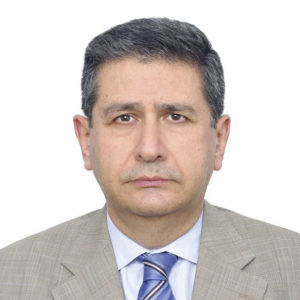Ioannis Metaxas, Greek Ambassador in Portugal
Now that the period of economic stability memorandums and huge sacrifices by the Greek people is over, the country has entered a new age of recovery, having established the right conditions for a sustainable economic growth, job increase and consolidation of public accounts. After the first post-memorandum general elections, on July 7, 2019, the new government continued its efforts to overcome the consequences of a decade of deep financial crisis. The end of the programs didn’t automatically mean the end of all problems, something that Portugal did realise also after the end of its own program. At the end of 2019, Greece followed the path of economic development, assisted by a constant trend of gradual reduction of public debt.
Within this framework, Greece continues to be a pole of stability in south-eastern Europe and in the Eastern Mediterranean region against the backdrop of prolonged crises both in Syria and Libya and the never-ending Cypriot issue, despite the huge efforts both countries – Greece and Cyprus – have engaged in to solve it.
Unfortunately, the big challenges of the migration and refugee issue are still there, generating strong tensions throughout 2020. Greece has tackled all these issues firmly and ensuring stability. It has always acted in a both serene and proportional manner, defending its borders, which are also the borders of the European Union. Greek foreign policy is structured around the strong foundations of international law and the acquis communautaire that Greece has always complied with and will continue to do so.
However, the aforementioned country’s positive path was abruptly interrupted by the invasion of the new virus. In order to face this new challenge, Greece established as first priority defending the health of all citizens, fighting the virus, in order to prevent it from spreading further, and reducing the socio-economic effects of the pandemic.
Since January, the Prime Minister, Kyriakos Mitsotakis, has asked the authorities to draw an action plan to halt the spread of the virus, based on the opinion of the scientific community and in close communication with the World Health Organization and the European institutions. It implemented also a number of measures to strengthen the National Health System, which, it is worth highlighting, has highly qualified medical and healthcare personnel. It’s worth remembering that Greece enjoys a high level of university studies in Medicine and Health Sciences.
The first measures were taken on February 27, after the country witnessed the first case, with the cancellation of the Carnival celebrations. On March 10, it was decreed that schools and universities were to be closed. The imposition of general confinement arrived on March 13, the day after the first deadly victim was reported, with the closing of all retail outlets, museums, monuments, restaurants, cafes, hotels, gyms and beaches.
The rapid response to contain the exponential growth of the virus was accompanied by a plan to address the economic impact of the crisis on companies and workers. The Government launched a comprehensive package of subsidies and credit lines to support: (a) companies, with injections of liquidity and exceptional and temporary measures to ease their liabilities to the banks, social security and tax authorities, (b) employment, with a clause prohibiting redundancies in companies under lay-off regime and (c) ensuring income for private sector workers and independent professionals affected by the lockdown. Similar measures were also taken to stimulate the recovery of the economy during the de-confinement. The global package mobilised by the government was 12.5 billion euros. To this amount we should add the support resulting from the use of the mechanisms and funds to be made available by the European Union to members (SURE program, EIB credit line).
It’s also worth mentioning the contribution of Greece to scientific research in order to beat covid-19. The Prime Minister, Kyriakos Mitsotakis offered, on behalf of the Greek Government, €3 million at the international donor conference organised by the European Union for the development of both a vaccine and treatment of the virus. At the same time, the General Secretariat for Research and Technology launched an epidemiological study worth 2.5 million euros, focused on deciphering the virus genome.
Having effectively stopped the spread of the virus, the Greeks entered, in early May, in the de-confinement stage with confidence in their Public Administration, which was able to act effectively.
No one doubts that the situation facing the country will be difficult and that the public debt will start to skyrocket. But there are European institutions and tools to help EU Member States manage this crisis. On the other hand, Greece and Portugal are joining efforts within the EU, asking for subsidies, not loans, which lead to an increase of public debt, and are working together as regards the return of tourism. The two peoples share similar goals, despite the fact that geography has placed them at opposite ends of the southern European continent. The two countries also share the same values of democracy and human rights. This common basis of values and objectives works as an invisible thread that unites our two peoples, allowing them look to the future with optimism.
On this occasion, I would like to express my admiration for the maturity shown by both the Portuguese and the Greeks in these extraordinary times. Together and helping each other, we will overcome the difficult problem of covid-19.







